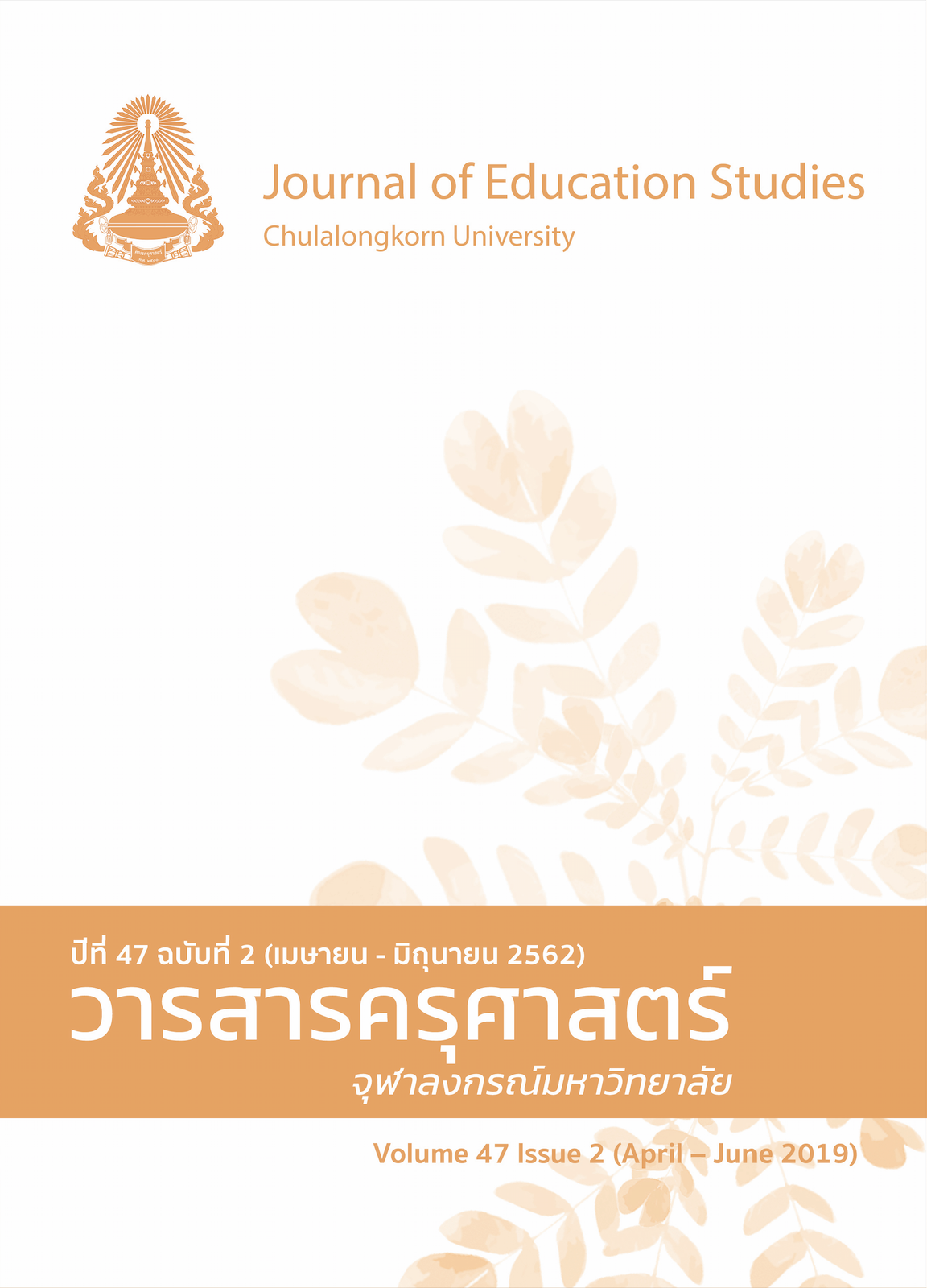การพัฒนาแผนการจัดการเรียนรู้วิชาวิทยาศาสตร์และเทคโนโลยีสมัยใหม่ โดยใช้การเรียนรู้แบบ สืบเสาะหาความรู้ร่วมกับการเรียนรู้แบบอุปนัย เพื่อพัฒนาความสามารถในการคิดวิเคราะห์ และผลสัมฤทธิ์ทางการเรียน สำหรับนักศึกษาระดับปริญญาตรี
Keywords:
INQUIRY APPROACH, INDUCTIVE METHOD, ANALYTICAL THINKING ABILITY, ACHIEVEMENTAbstract
The purposes of this research were to develop and examine the efficiency of lesson plans for the Science and Modern Technology subject by using the inquiry approach and inductive method for undergraduate studentsusing the criterion of 75/75, and to compare the analytical thinking ability and learning achievement between, before and after using the developed lesson plans. The sample of this study consisted of 27 undergraduate students of Rajamangala University of Technology Isan, Sakon Nakhon Campus in the second semester of the 2017 academic year were by using cluster random sampling. The researcher developed 4 lesson plans. The instruments for collecting data were 1) a analytical thinking ability test and 2)learning achievement tests. The data were analyzed by using descriptive statistics percentage, mean, standard deviation, and t-test for dependent samples.
The research results showed that 1) the efficiency of the lesson plans for Science and Modern Technology by using the inquiry approach and onductive method for undergraduate studentswas at 80.07/79.68, which was higher than the criteria set;2) the analytical thinking ability of students after using the developed lesson plans was higher than before at a .01level of significance; and 3) the learning achievement of students after using the developed lesson plans was higher than before at a .01 level of significance



